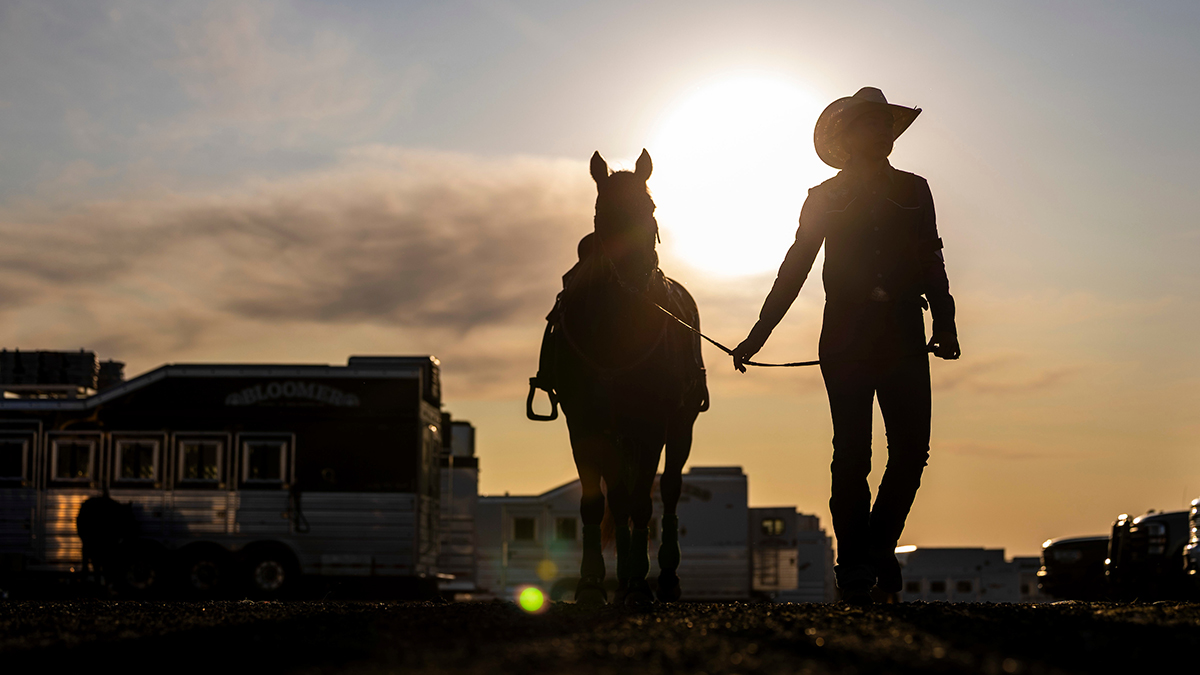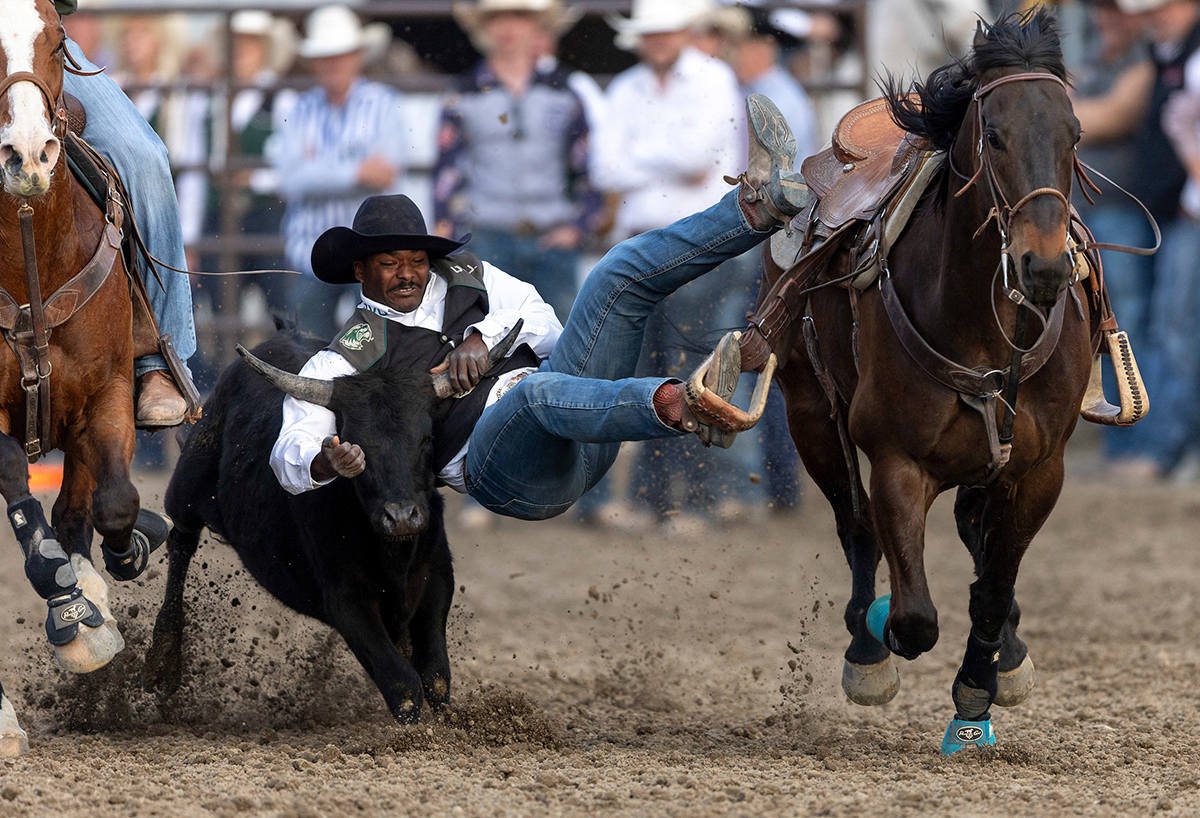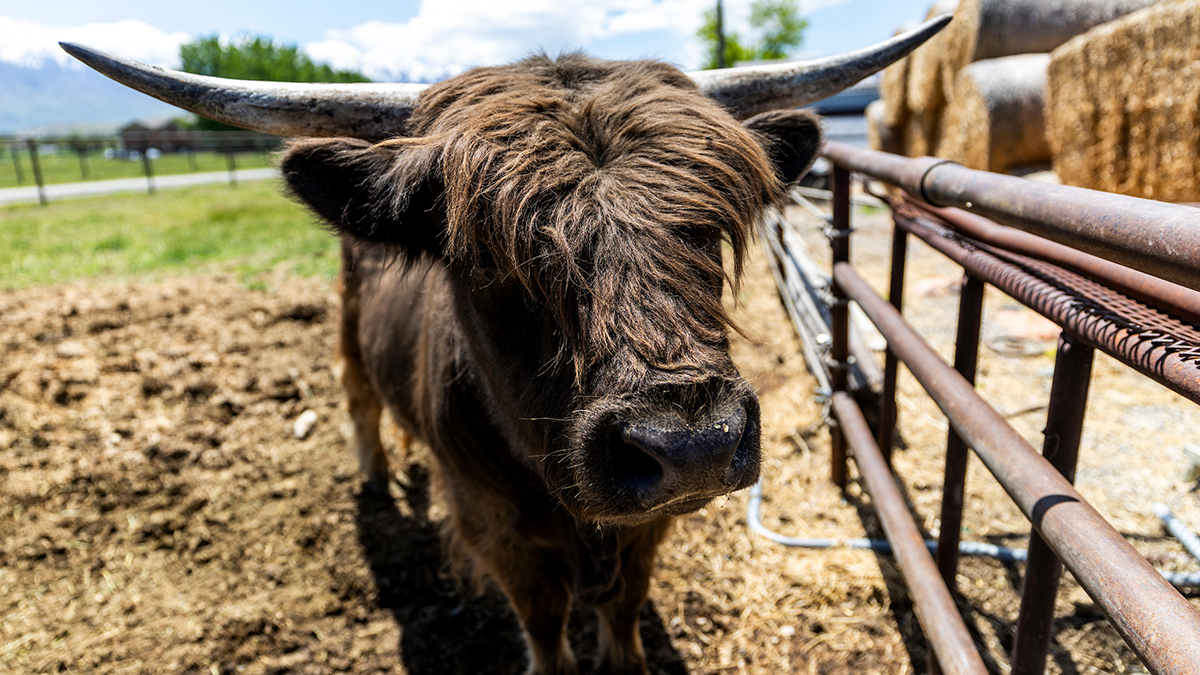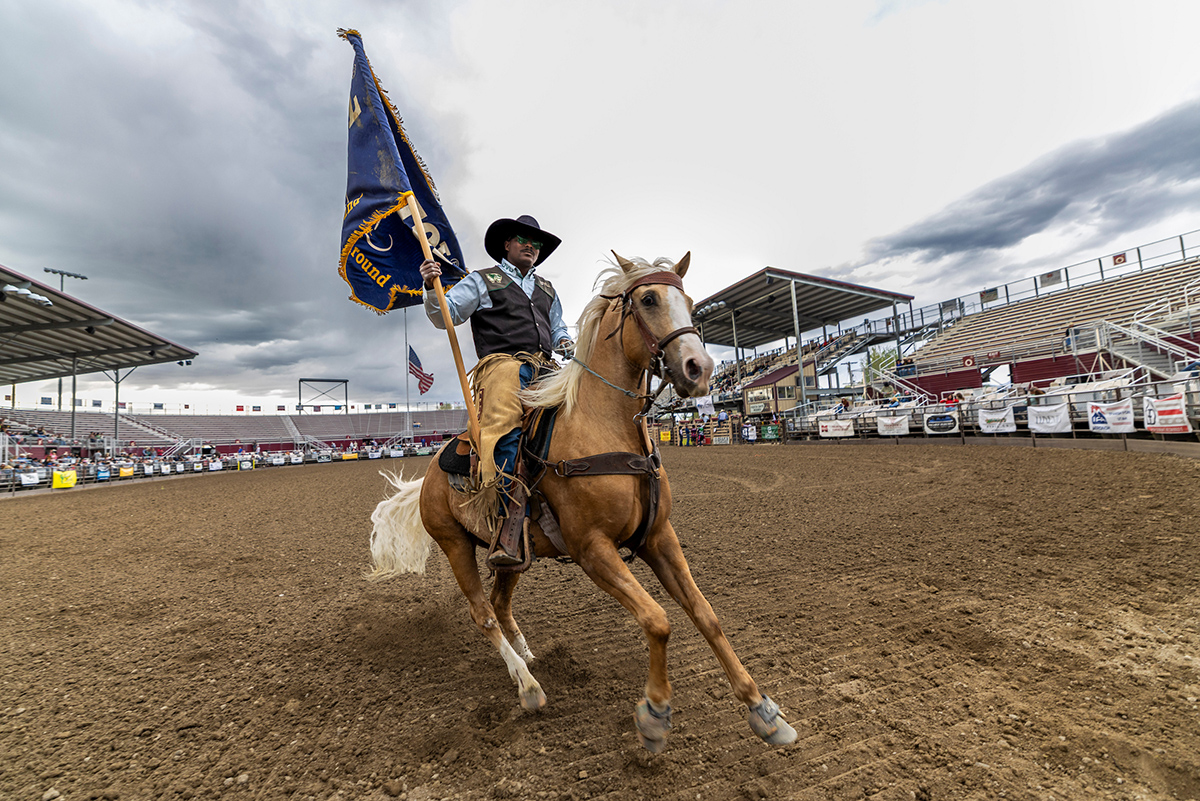Speak with any member of the Utah Valley University rodeo team, or with the program’s director and coach, Shane Draper, and you’ll soon hear about “the Western way of life.”

Speak with any member of the Utah Valley University rodeo team, or with the program’s director and coach, Shane Draper, and you’ll soon hear about “the Western way of life.”
More than the competitions — where UVU’s team consistently excels — and more than the training and athletic components — which are rigorous and require dedication, practice, and skill — UVU’s rodeo athletes know they represent not just a sport they love, but a community and a lifestyle that is increasingly rare in today’s world.
“Building the community and keeping the Western way of life in the community, to me, is a big thing,” Draper said. “Especially in southern Utah County, we have a lot of companies that want to be involved and help keep agriculture as part of our livelihood.”
UVU student and rodeo athlete Hayden Andersen puts it in even simpler terms: “This is what we do to find happiness.”

The history of rodeo at UVU begins in 1968, when the school was known as Utah Technical College. The rodeo team is technically UVU’s first-ever official athletic program. One of the team’s earliest coaches and volunteers was Lewis Feild, a former Professional Rodeo Cowboys Association (PRCA) World Champion.
Years later, his son, Kaycee, became a UVU rodeo team member, winning a national championship in bareback bronc riding in 2008. Kaycee has since gone on to win a total of six PRCA world titles.
“I don’t know any different,” Kaycee said. “It’s my lifestyle; it’s my family’s lifestyle. I grew up in it. From a very young age, all I know is to put on the cowboy hat and cowboy boots and go about my day.”
While Kaycee found tremendous success in professional rodeo, he said there was something different about competing at UVU, because he knew he was representing more than himself and his family.
“When you grow up rodeoing … it’s you and the animal. You’re not concerned about anybody else,” Kaycee said. “And then you go to college, and you’re on a team, and everybody’s points matter — everybody’s discipline is part of the team. But it’s awesome to feel that. It’s awesome that your performance matters and adds a little pressure. You want to represent that college the best that you can.”
Kaycee’s success and education have also led to endorsement deals with brands including Ariat and Polaris. In 2022, with support from Ariat, Kaycee fulfilled a longtime dream by shooting a video of himself riding a bucking horse alone on the Bonneville Salt Flats.
“To wear a brand in the Western culture means something,” he said. “And people really want to represent that brand well and win.”

Andersen said Rodeo team members often bring their laptops with them to competitions to do homework between events, tethering to internet connections via their mobile phones, because it’s important to them to support each other.
As an emergency services major who works for Provo City, Andersen’s days are long. He spends part of his time traveling with his animals and transporting them to the rodeo team’s practice grounds and arenas. He said he understands the importance of completing a college degree because nobody can compete in rodeo forever.
“I think a lot of people give the reputation that cowboys are kinda dumb,” Andersen said. “The truth is, if you look at the National Finals Rodeo, most of those guys? College rodeo. Most of those guys have degrees. Lots of us have realized that we can’t rodeo the rest of our lives. Being able to have a degree is amazing.”
Sam Carson, one of seven UVU rodeo national champions, said UVU faculty have been supportive not just of his rodeo pursuits but also his struggles with dyslexia, which can inhibit his learning speed.
“It's been awesome to be able to go to school, get a degree, and to be able to rodeo,” Carson said. “The teachers are awesome. They always take time out of their day. They're not rude with grades. They truly want you to excel and learn the curriculum.”
The quality and availability of the practice grounds, and their distance from UVU facilities, are big reasons why the rodeo team is currently seeking support and funding for a new arena. But more than that, Draper said, a first-class venue would serve the community — no matter how familiar they are with rodeo.
“We could have a community ride night, where those in the community could come and use the facility,” Draper said, also mentioning non-rodeo events such as archery shoots and garden shows. “The sky's the limit as far as what we could do, as far as outside events come in, and ways that it could benefit the community with those outside events.”
To support UVU rodeo and contribute to new rodeo and community facilities, visit https://www.uvu.edu/rodeo/support-the-team/index.html.
